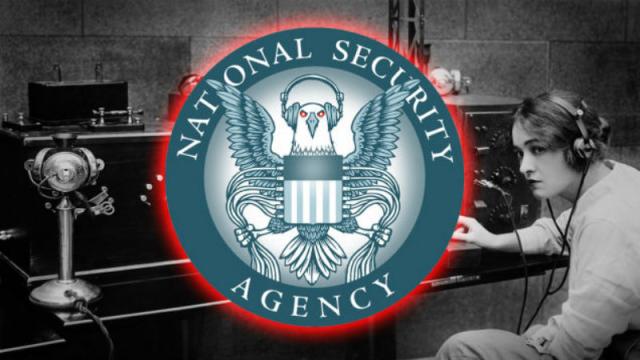Imagine you know your neighbour is spying on you, and you sue them, but your case gets dismissed for lack of evidence. Then a few months later your creepo neighbour gets doxxed and his emails outline his elaborate plan for neighbour-stalking. You sue again. You’re gonna win, right?
A US federal district court dismissed a case challenging the National Security Agency’s “upstream surveillance” program today using the same excuse we heard in an earlier case challenging the NSA: There’s no hard proof the government spied on you.
This is like saying that you can’t prove your neighbour spied on you unless you catch them red-handed masturbating into a telescope like a freaknasty Hitchock character.
Using the Supreme Court’s decision in Clapper v Amnesty, a 2013 case challenging warrantless wiretapping, the court granted the government’s motion to dismiss Wikimedia v NSA because the plaintiffs couldn’t prove beyond speculation that they were spied on.
If this is confusing, that’s understandable. The Supreme Court decided Clapper v Amnesty before Edward Snowden gave journalists documents that provided an extensive look at the NSA’s upstream surveillance. Those documents provide ample evidence of a NSA mass surveillance program, after all, and they have been out for years. In light of all that new information lending credence to the plaintiff’s claims, Wikimedia v NSA looked like it had a better chance.
So what the hell happened here?
For this court, proof that the program exists isn’t enough for Article III standing, which decides if a plaintiff’s injury is “concrete; particularized; and actual and imminent; fairly traceable to the challenged action.” So the plaintiffs — the Wikimedia Foundation, the Rutherford Institute, The Nation magazine, Amnesty International USA, PEN American Center, Human Rights Watch, the National Association of Criminal Defence Lawyers, Global Fund for Women, and Washington Office on Latin America — needed to cough up evidence that the NSA had spied on them in particular.
One of the NSA slides showed Wikipedia as a target, but that wasn’t enough. The court took a bizarre line on the Snowden evidence, insisting that it only proved that the government could spy to the degree the plaintiffs were alleging, and not that it was spying in a concrete way:
“As with any technology, technical capability is not tantamount to usage levels. For example, a car capable of speeds exceeding 200 mph is not necessarily driven at such speeds,” the court writes. “Plaintiffs provide no factual basis to support the allegation that the NSA was using its surveillance equipment at full throttle.”
This, of course, puts anyone who wants to challenge NSA surveillance in an impossible situation. They can only fight this program if they can prove that the NSA is spying on them.
Imagine this: Your fucko neighbour even includes a photo of your house in his manifesto on being a Peeping Tom, but the court rules that it just meant he had the capability to wank off in front of your back door.
Photo via Shutterstock
